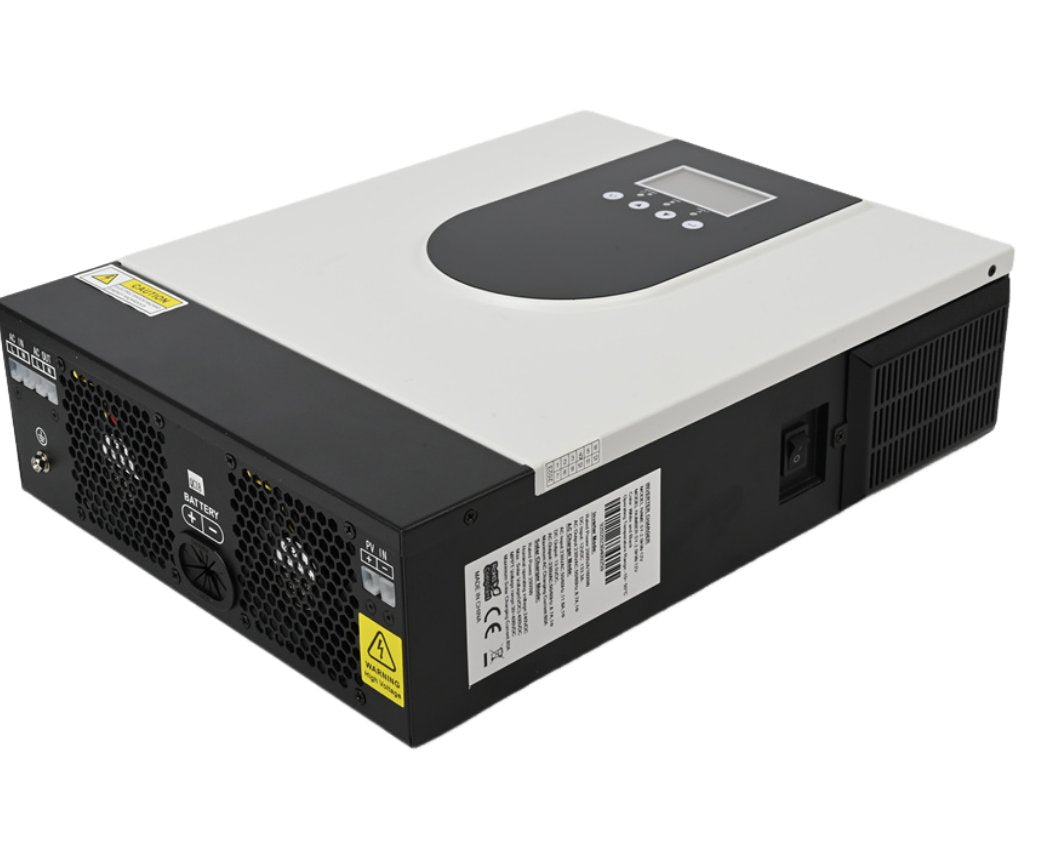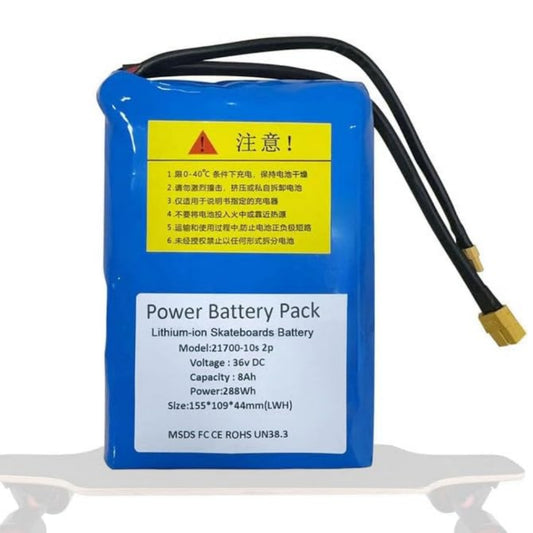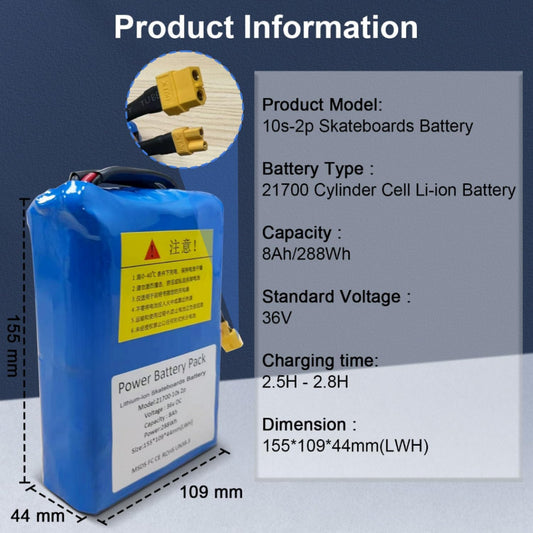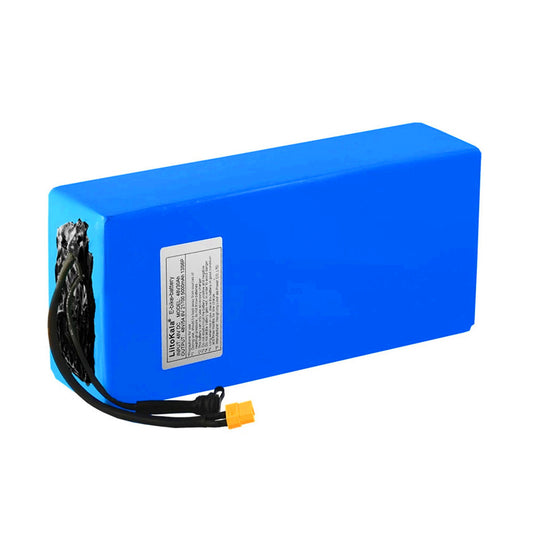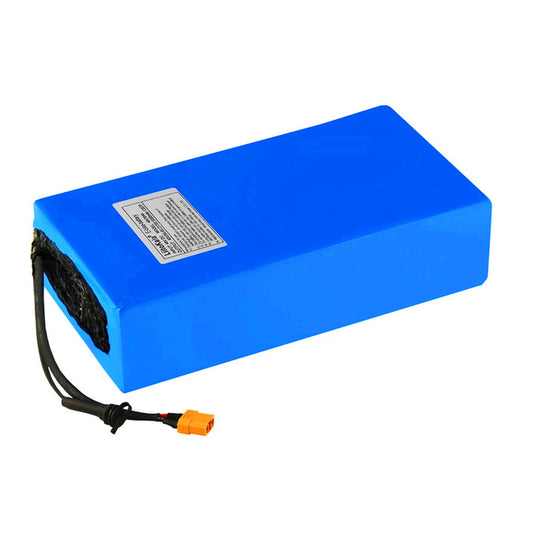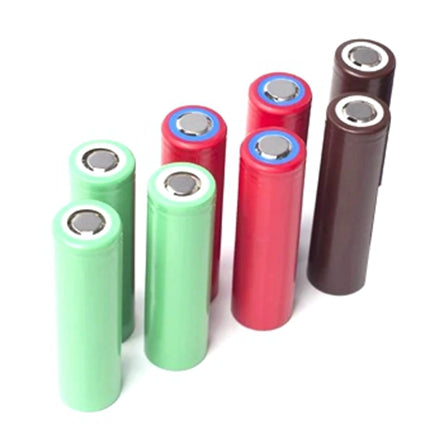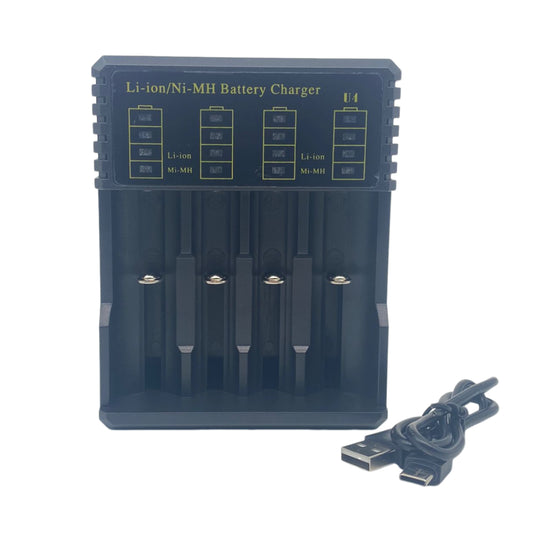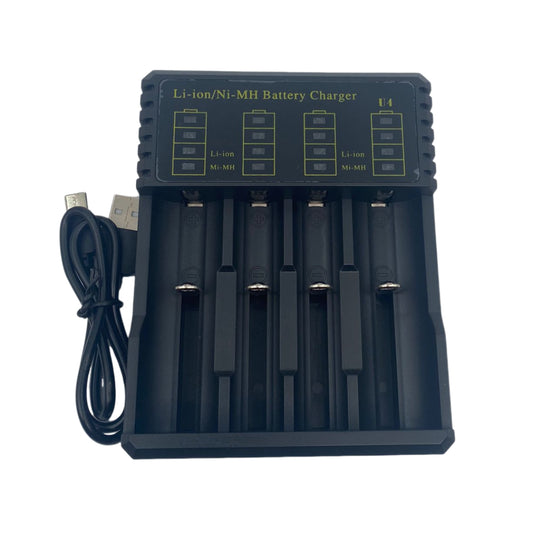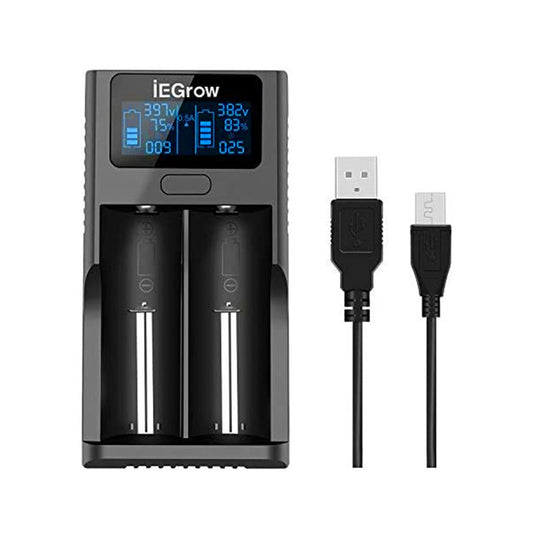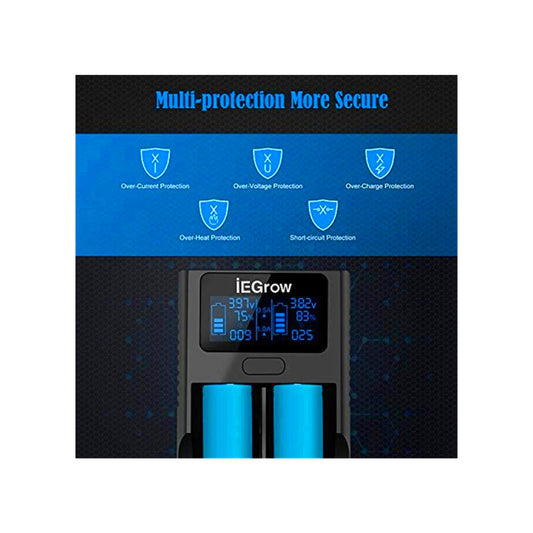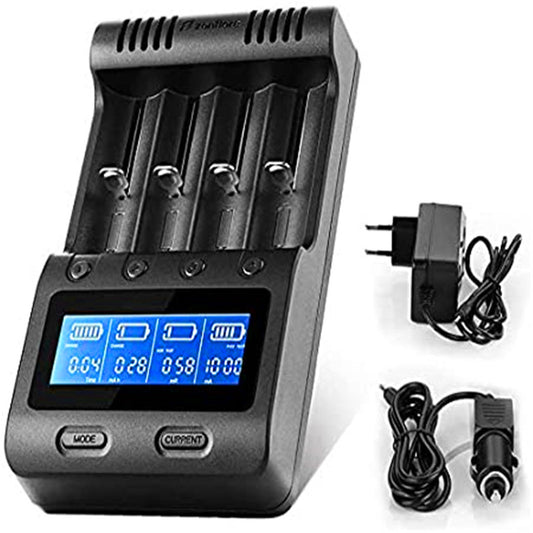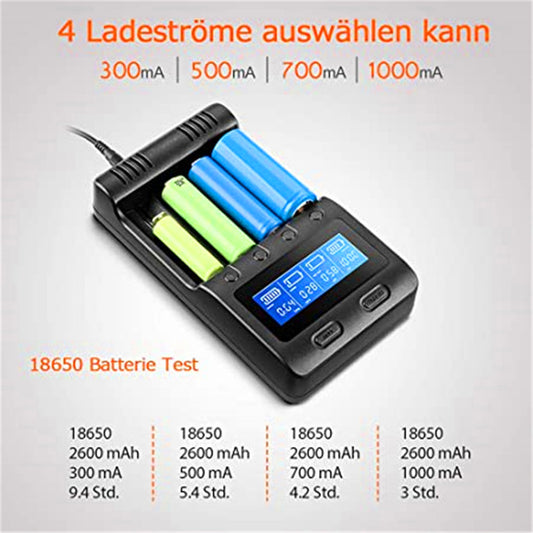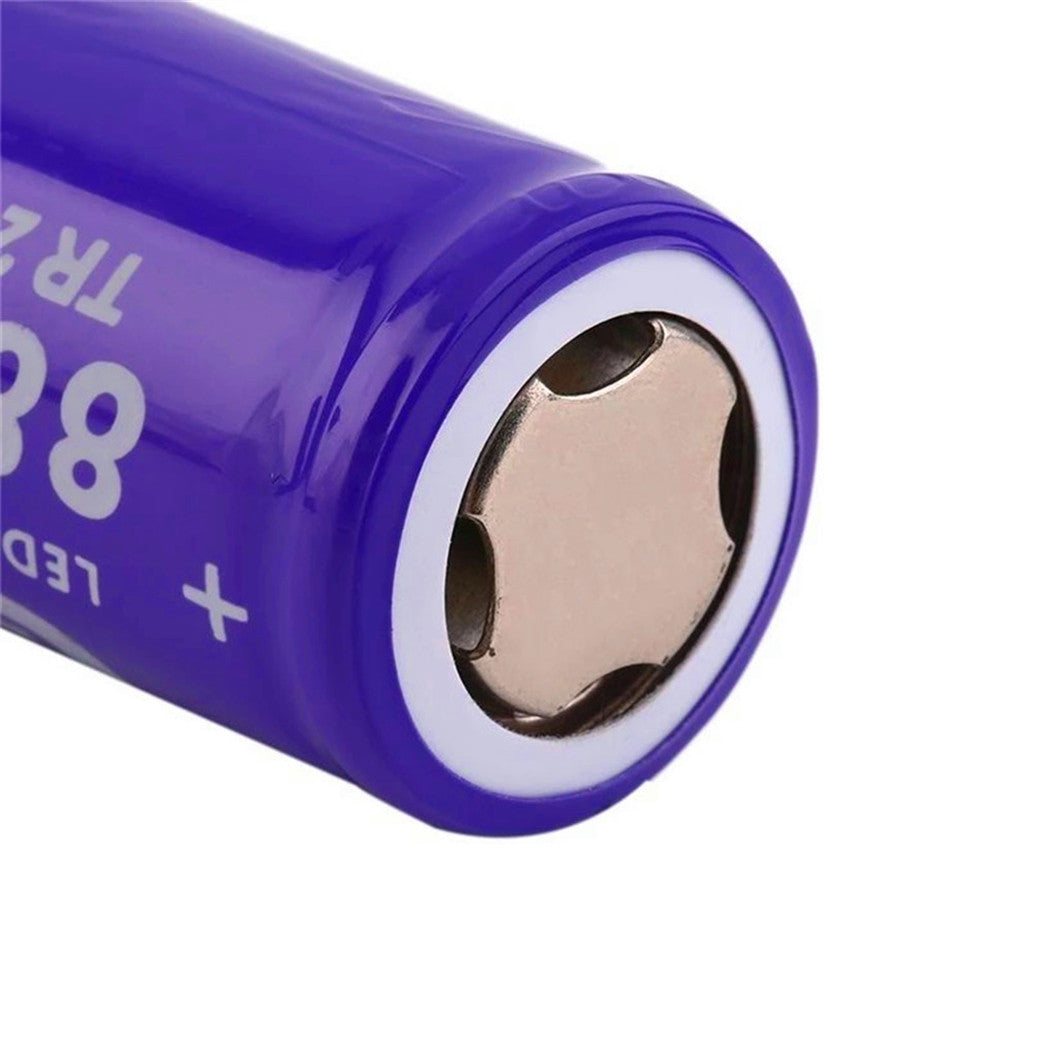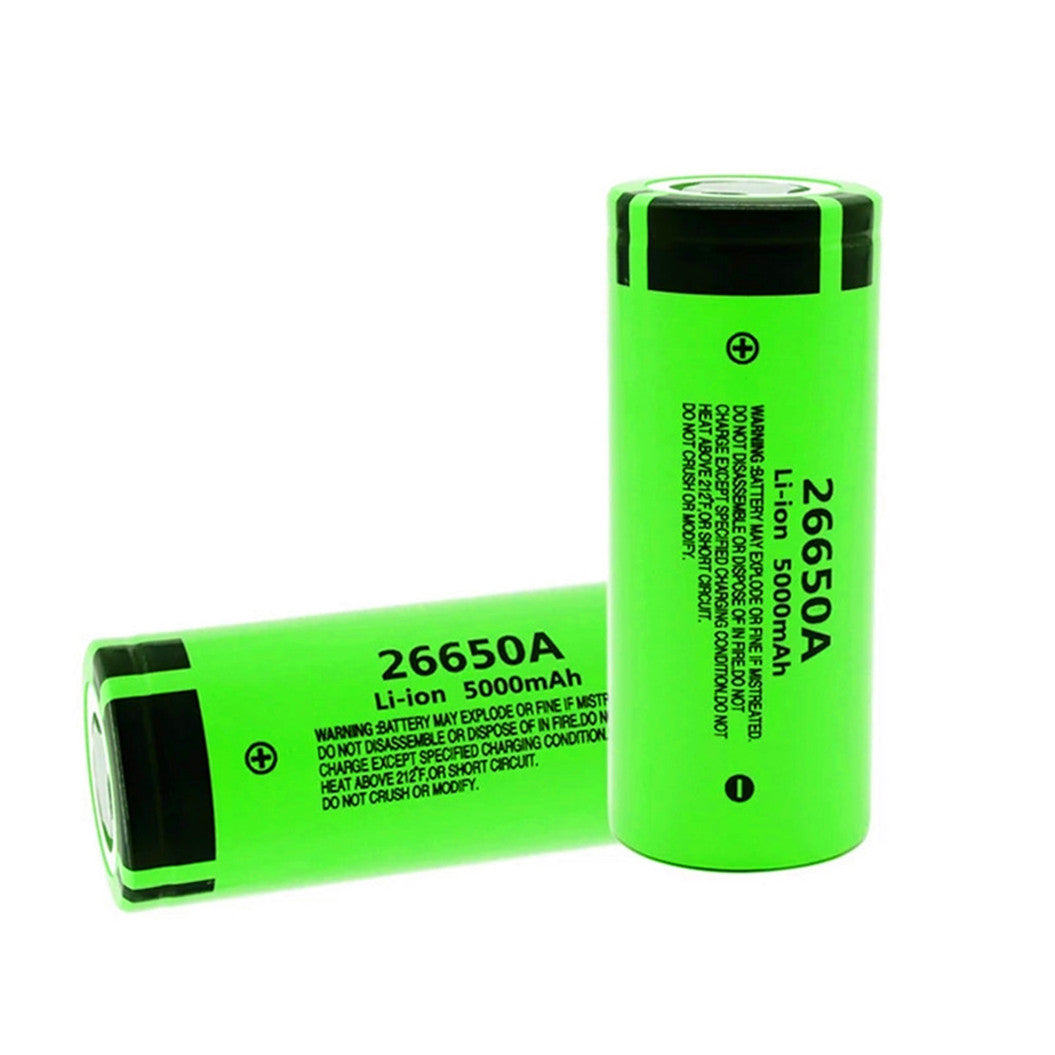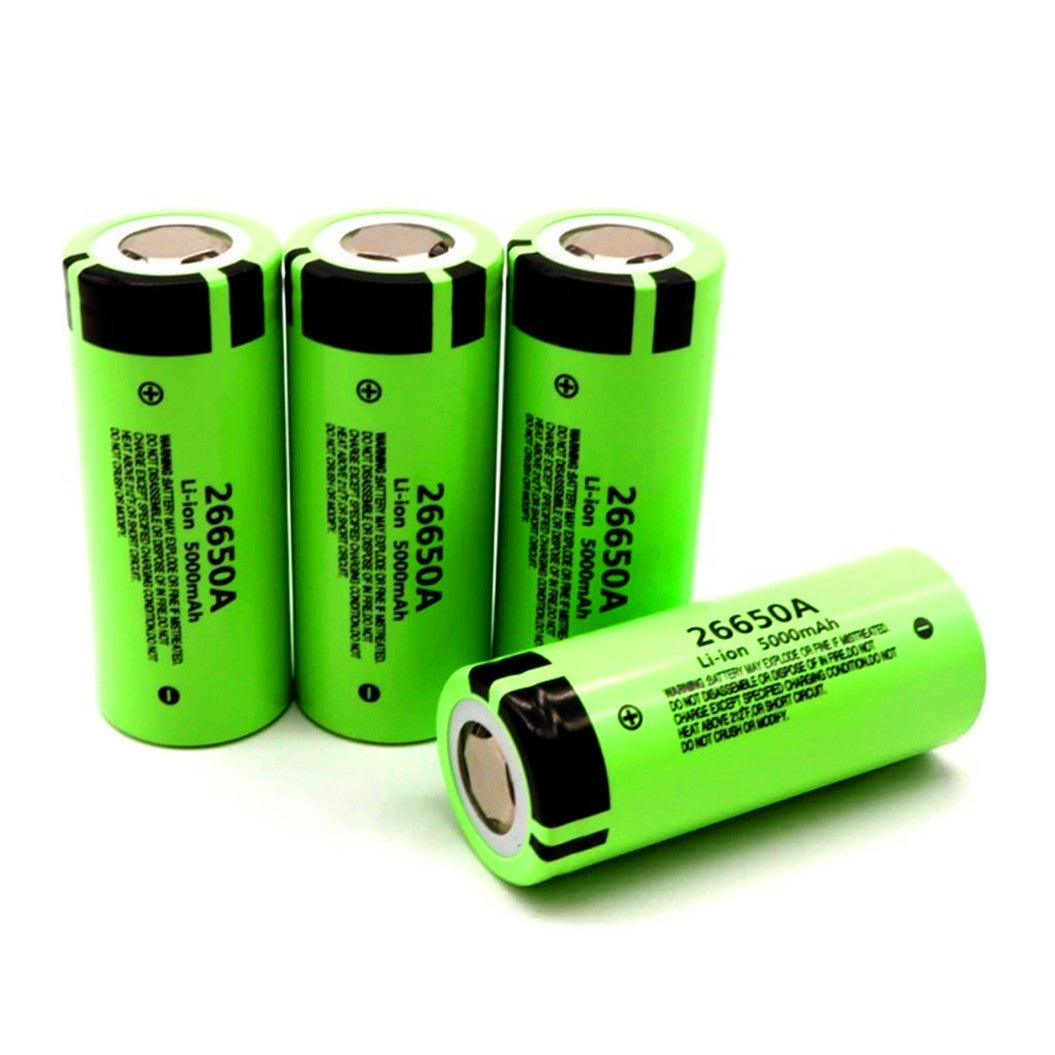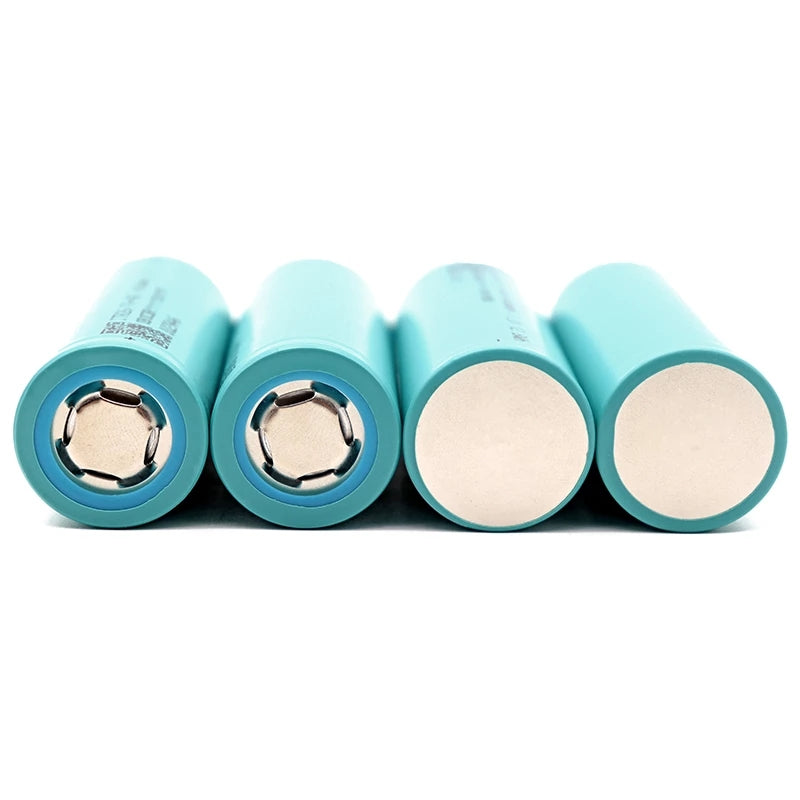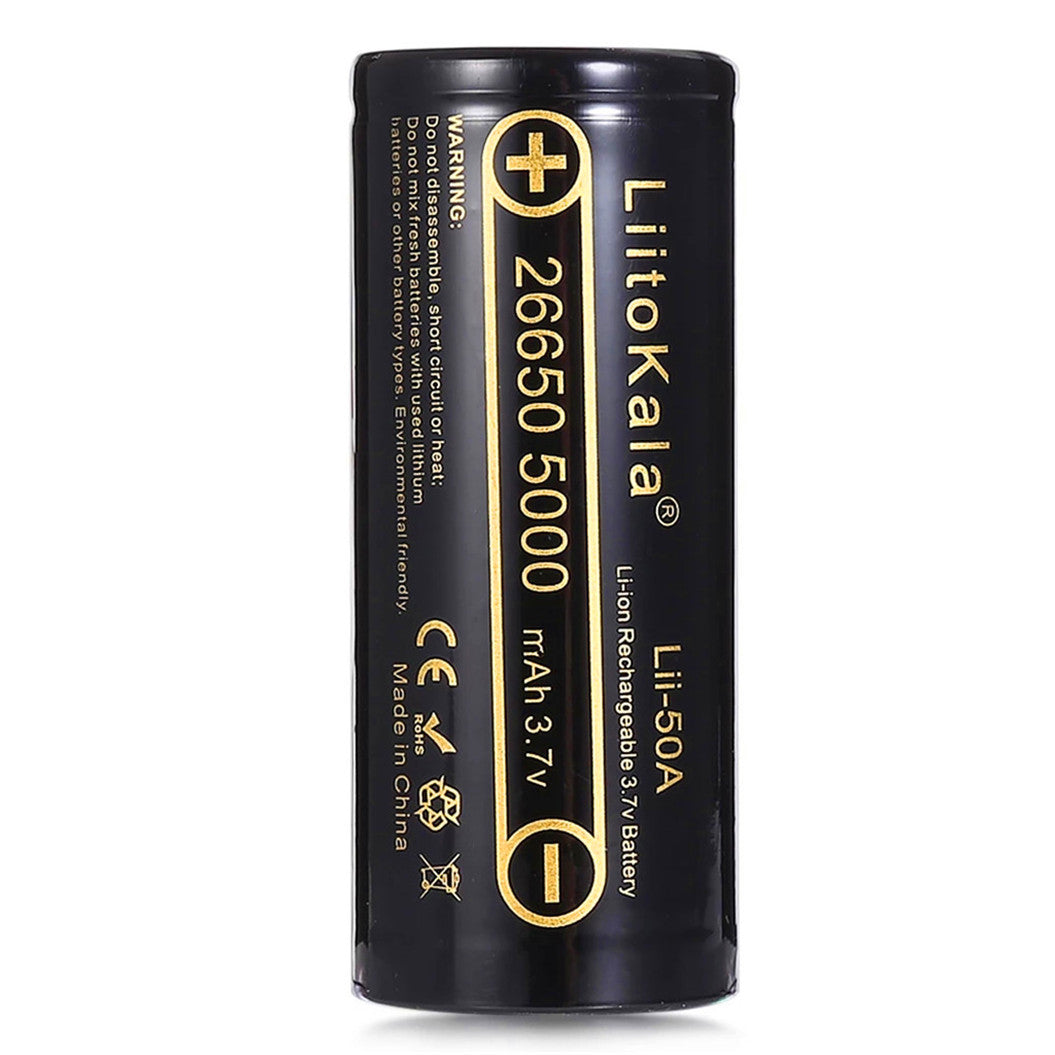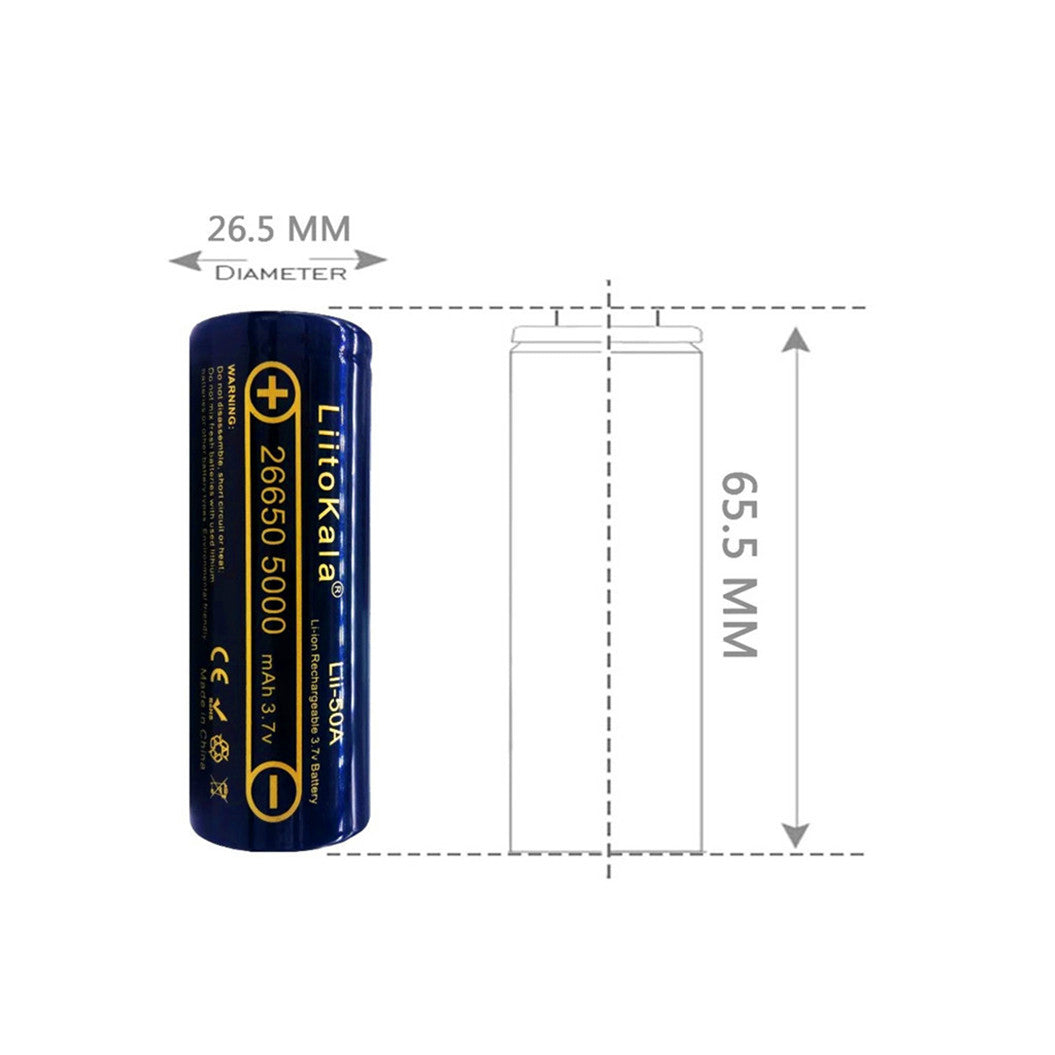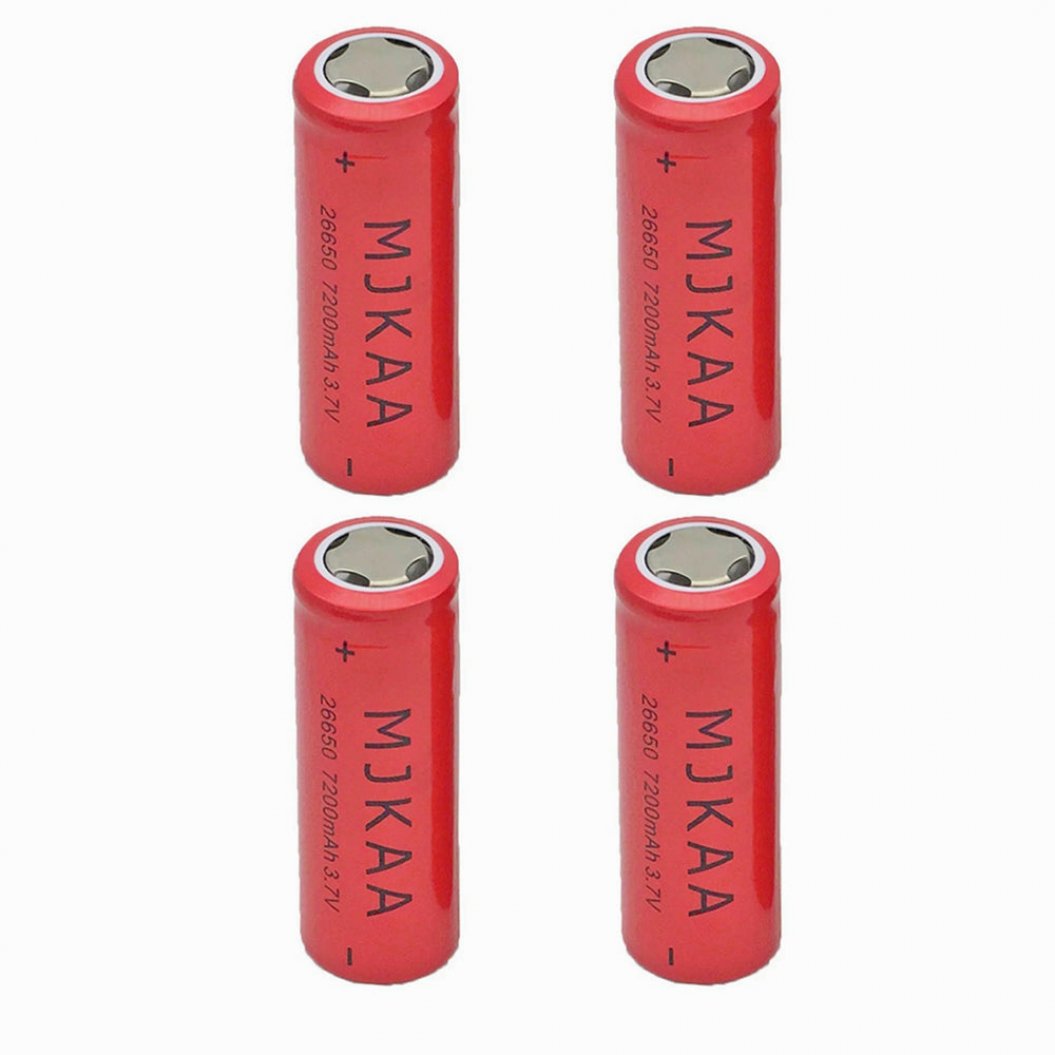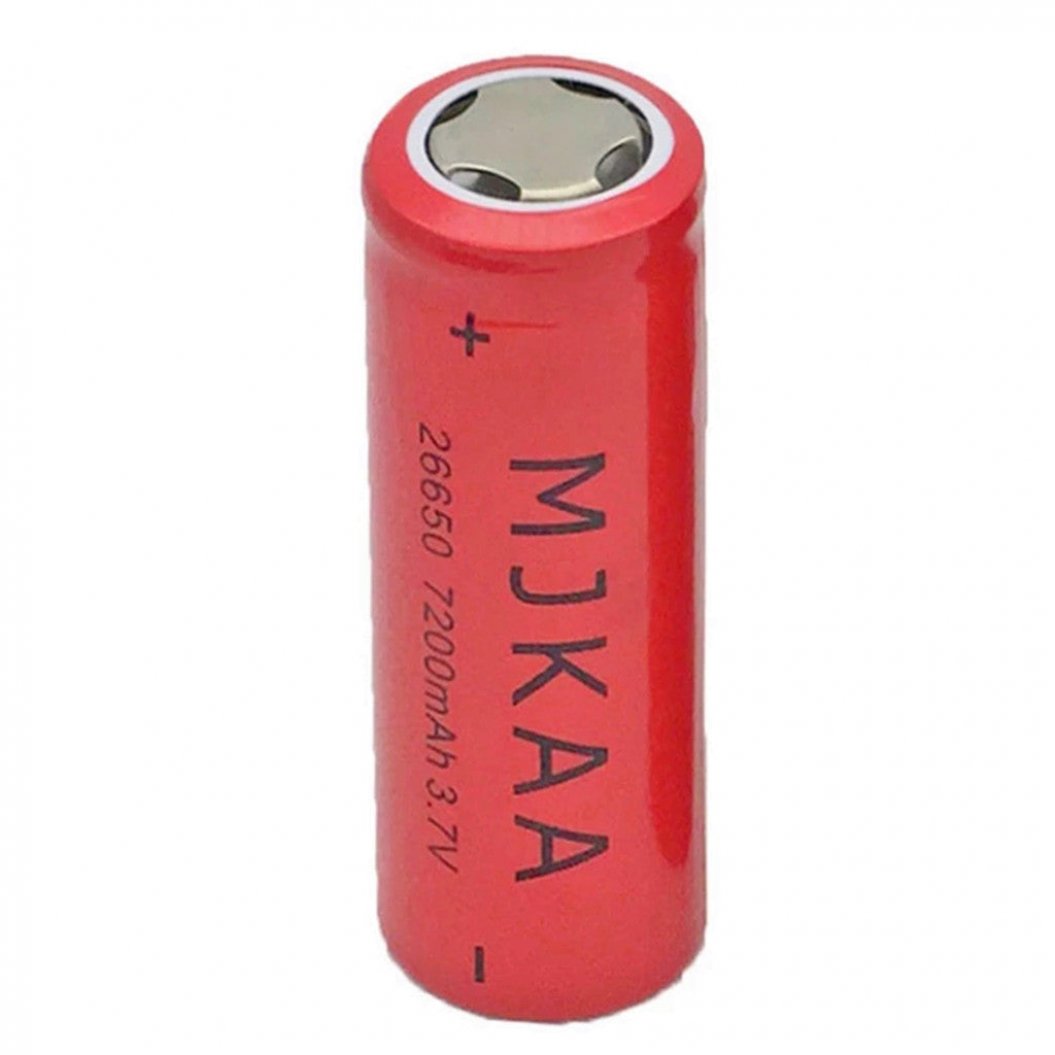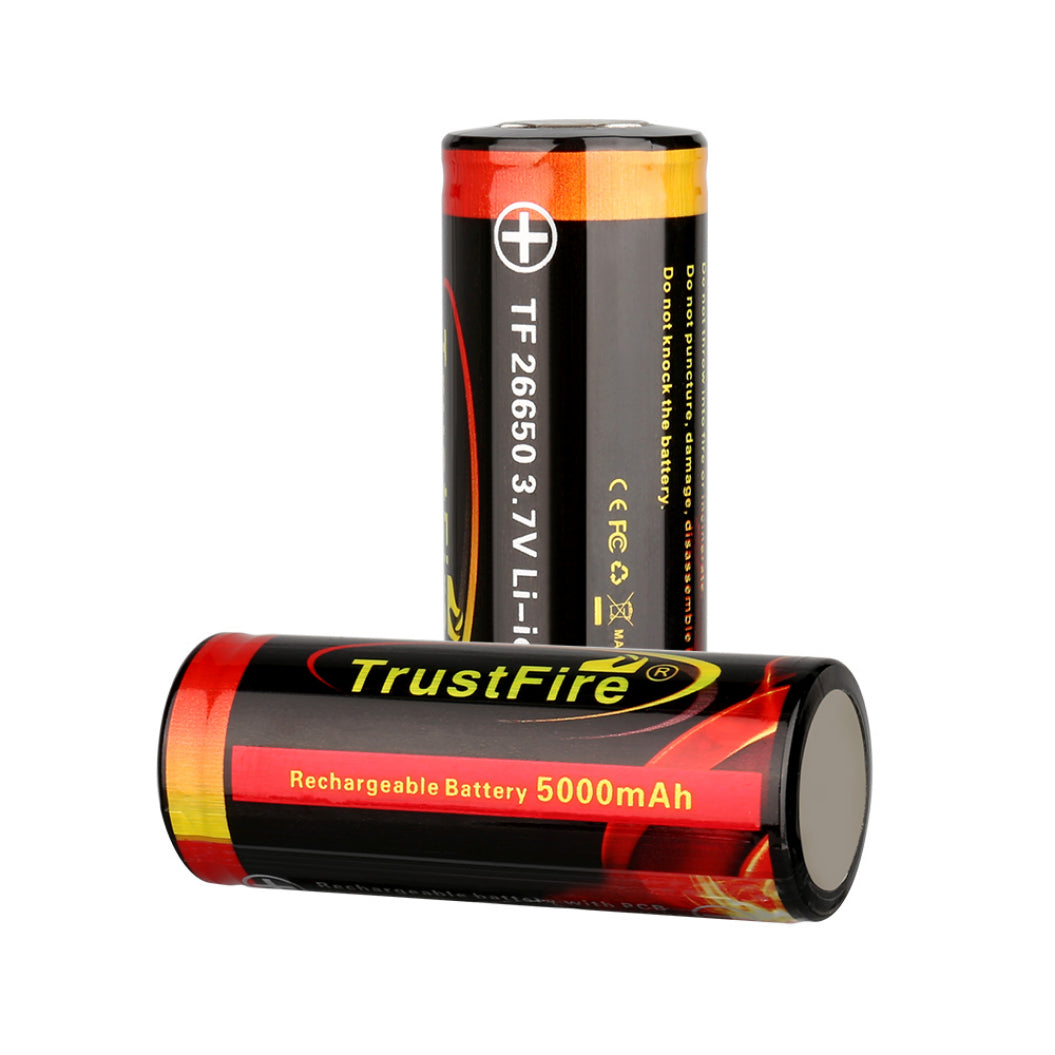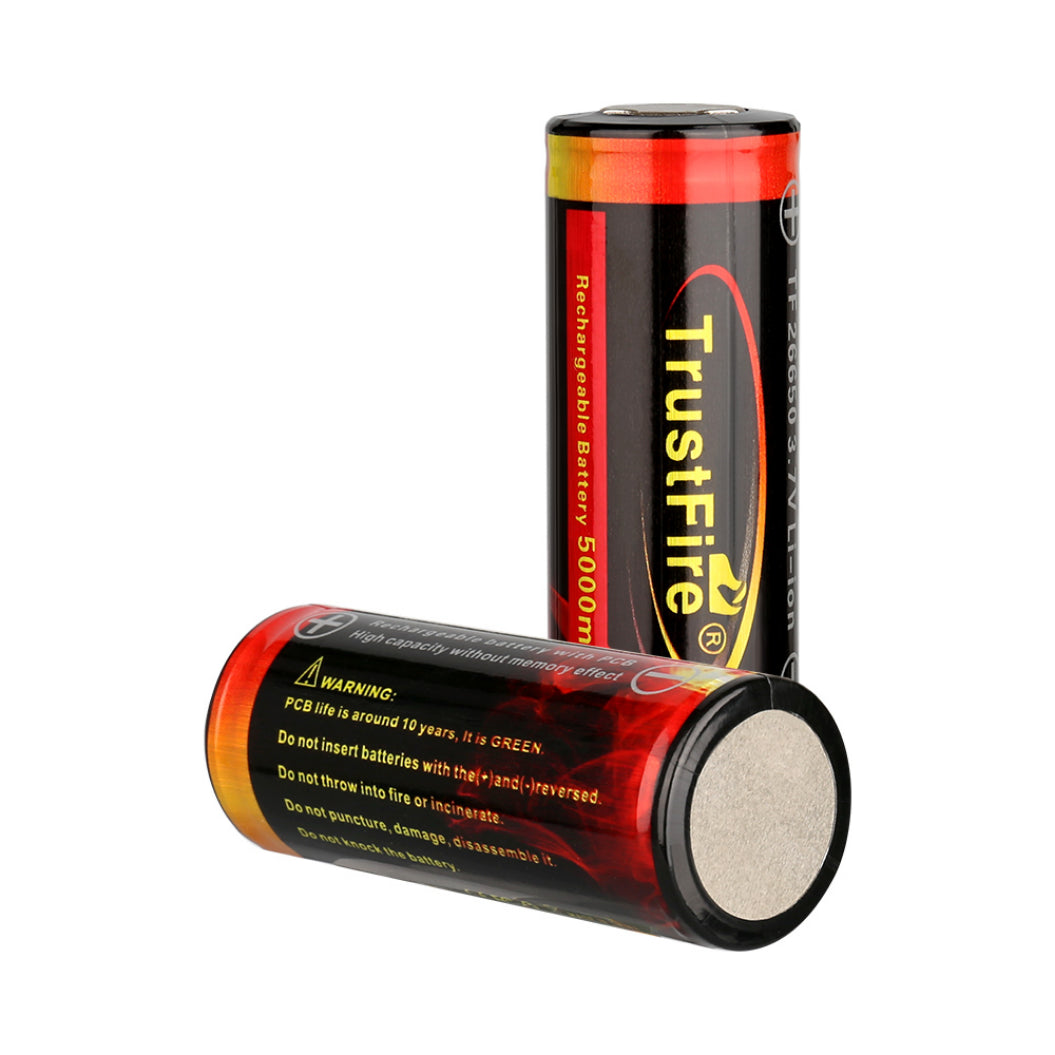-
Distributeur :BATTERYINT
Lot de 2 batteries 26650 5000 mAh - 5500 mAh 3,7 V Li-ion pour lampe de poche Power Bank
- Prix habituel
- $12.99
- Prix habituel
-
- Prix soldé
- $12.99
- Prix unitaire
- par
Lot de 2 batteries 26650 5000 mAh - 5500 mAh 3... -
Distributeur :BATTERYINT
Lot de 2 batteries lithium-ion rechargeables 26650 3,7 V 8800 mAh, utilisées pour lampe de poche
- Prix habituel
- $13.99
- Prix habituel
-
- Prix soldé
- $13.99
- Prix unitaire
- par
Lot de 2 batteries lithium-ion rechargeables 2... -
Distributeur :BATTERYINT
Lot de 2 batteries lithium-ion 26650A 3,7 V 5000 mAh
- Prix habituel
- $15.99
- Prix habituel
-
- Prix soldé
- $15.99
- Prix unitaire
- par
2 pièces Batterie lithium-ion 26650A 3,7 V 5000... -
Distributeur :BATTERYINT
Lot de 2 batteries lithium-ion 26650 5000 mAh 3,7 V 26650 à dessus plat pour lampe de poche et lampe frontale
- Prix habituel
- $24.99
- Prix habituel
-
- Prix soldé
- $24.99
- Prix unitaire
- par
Lot de 2 batteries lithium-ion 26650 5000 mAh ... -
Distributeur :BATTERYINT
Lot de 4 batteries lifepo4 3,2 V 26700 4000 mAh pour pack de feuilles de décharge 10 A
- Prix habituel
- $19.80
- Prix habituel
-
- Prix soldé
- $19.80
- Prix unitaire
- par
Lot de 4 batteries lifepo4 3,2 V 26700 4000 mAh... -
Distributeur :BATTERYINT
Lot de 2 batteries lithium-ion haute capacité 26650 5000 mAh Lii-50A 3,7 V 26650-50A pour lampe de poche 20 A, nouvel emballage
- Prix habituel
- $18.99
- Prix habituel
-
- Prix soldé
- $18.99
- Prix unitaire
- par
Lot de 2 batteries lithium-ion haute capacité 2... -
Distributeur :BATTERYINT
Lot de 4 batteries rechargeables LiFePO4 3,2 V 26650 3200 mAh au lithium IFR 26650
- Prix habituel
- $19.90
- Prix habituel
-
- Prix soldé
- $19.90
- Prix unitaire
- par
Lot de 4 batteries rechargeables LiFePO4 3,2 V ... -
Distributeur :BATTERYINT
Lot de 4 batteries lithium-ion de grande capacité 26650 7200 mAh 3,7 V pour lampe de poche, flambant neuves
- Prix habituel
- $23.99
- Prix habituel
-
- Prix soldé
- $23.99
- Prix unitaire
- par
Lot de 4 batteries lithium-ion 26650 de grande ... -
Distributeur :BATTERYINT
Batterie Li-ion rechargeable 26650 3,7 V 5000 mAh avec carte de protection pour lampe torche LED
- Prix habituel
- $14.56
- Prix habituel
-
- Prix soldé
- $14.56
- Prix unitaire
- par
Batterie Li-ion rechargeable 26650 3,7 V 500...
Affichage 1 -9 de 9 articles
1. Qu'est-ce qu'une batterie au lithium 26650 ?
Une batterie au lithium 26650 est une batterie lithium-ion rechargeable plus grande et plus puissante que les autres batteries au lithium courantes, comme la 18650. Son nom vient de ses dimensions : 26 mm de diamètre et 65 mm de longueur. La batterie 26650 a généralement une tension nominale de 3,6 V à 3,7 V et est largement utilisée dans les appareils qui nécessitent une puissance de sortie élevée et une autonomie prolongée, tels que les outils électriques, les vélos électriques, les lampes de poche à haute luminosité et même certaines centrales électriques portables. Sa taille plus grande permet une capacité énergétique plus élevée, ce qui en fait un choix idéal pour les applications à forte consommation.
2. Quelle est la capacité d'une batterie 26650 ?
Une batterie 26650 offre une plage de capacité de 3000 mAh à 5000 mAh, certains modèles à haute capacité atteignant jusqu'à 6000 mAh. Cette capacité élevée signifie que la batterie peut stocker plus d'énergie, ce qui lui permet d'alimenter des appareils pendant des périodes plus longues. Par exemple, dans une lampe de poche à haute luminosité, une batterie lithium-ion 26650 entièrement chargée peut fournir une luminosité prolongée pendant 8 à 12 heures, tandis que dans les appareils à faible puissance, elle peut durer plusieurs jours. Les appareils qui nécessitent une alimentation en énergie plus importante, comme les vélos électriques ou les outils électriques, bénéficient du stockage d'énergie plus élevé qu'offrent les batteries 26650.
3. Quelle est la différence entre une batterie 21700 et une batterie 26650 ?
La principale différence entre les deux réside dans la taille. La batterie 21700 mesure 21 mm de diamètre et 70 mm de longueur, tandis que la batterie 26650 mesure 26 mm de diamètre et 65 mm de longueur. La batterie rechargeable 26650 a également une capacité plus élevée et une plus grande autonomie.
4. titre de la FAQ
La longévité d'une batterie rechargeable 26650 dépend de sa capacité et de la consommation électrique de l'appareil qu'elle alimente. Dans les appareils à forte consommation tels que les outils électriques, la batterie peut durer de 30 minutes à 2 heures d'utilisation continue. Cependant, dans les applications à faible consommation comme les lampes de poche LED ou les ventilateurs portables, une batterie au lithium 26650 entièrement chargée peut durer de 8 à 24 heures, selon la demande énergétique. En moyenne, les batteries 26650 peuvent effectuer 300 à 500 cycles de charge avant que leur capacité ne diminue de manière significative, bien que les modèles de haute qualité puissent dépasser ce nombre.
5. Comment puis-je prolonger la durée de vie d'une batterie lithium-ion 26650 ?
Pour prolonger la durée de vie de votre batterie lithium-ion 26650, évitez de la vider complètement pendant son utilisation, car les décharges profondes peuvent mettre à rude épreuve les cellules de la batterie et réduire leur durée de vie globale. Il est préférable de recharger la batterie lorsqu'elle tombe à environ 20 % de sa capacité. Évitez également d'exposer la batterie à des températures extrêmes, car la chaleur et le froid peuvent endommager sa structure interne. Lorsqu'elle n'est pas utilisée, stockez la batterie rechargeable 26650 à température ambiante, idéalement à environ 50 % de charge, ce qui permet d'éviter toute contrainte inutile sur les cellules. L'utilisation d'un chargeur de haute qualité avec protection contre les surcharges peut également prolonger la durée de vie de la batterie en évitant les surcharges.
6. Comment charger en toute sécurité une batterie au lithium 26650 ?
Pour charger une batterie lithium-ion 26650, il faut un chargeur compatible qui fournit une tension de charge stable de 4,2 V. Il est important de choisir un chargeur avec le courant de sortie adapté à votre batterie. Pour la plupart des batteries rechargeables 26650, un chargeur offrant un courant de sortie de 1 A à 2 A est idéal. Charger la batterie avec un courant supérieur à celui recommandé peut provoquer une surchauffe et potentiellement endommager la batterie. De nombreux chargeurs modernes incluent des fonctions de sécurité telles que l'arrêt automatique et la protection contre les surcharges, qui empêchent la batterie de se surcharger, garantissant ainsi sa sécurité pendant la charge.
7. titre de la FAQ
FAQ-sous-titre
8. titre de la FAQ
FAQ-sous-titre
9. Combien de temps peut-on stocker une batterie 26650 ?
Lorsqu'elle est stockée correctement, une batterie 26650 peut conserver la majeure partie de sa charge pendant plusieurs mois, voire un an. Les batteries au lithium 26650 ont un faible taux d'autodécharge d'environ 2 à 5 % par mois, ce qui signifie qu'elles perdent peu d'énergie pendant le stockage. Cependant, pour un stockage à long terme, il est préférable de conserver la batterie à environ 40 à 60 % de charge. Le stockage à pleine charge ou complètement déchargé peut mettre à rude épreuve les cellules de la batterie, réduisant ainsi sa durée de vie globale. L'environnement de stockage idéal est frais, sec et à l'abri de la lumière directe du soleil, avec des températures comprises entre 15 °C et 25 °C (59 °F à 77 °F), ce qui contribue à préserver la santé de la batterie.
10. Comment une batterie lithium-ion 26650 se compare-t-elle à une batterie 18650 ?
Bien que les batteries lithium 26650 et 18650 soient toutes deux utilisées dans les appareils à forte consommation, les principales différences résident dans la taille et la capacité. La batterie 26650 est physiquement plus grande, ce qui lui permet de contenir plus d'énergie que la batterie 18650. Par exemple, la batterie 18650 typique a une plage de capacité de 2000 mAh à 3500 mAh, tandis que les batteries 26650 peuvent atteindre des capacités allant jusqu'à 5000 mAh ou plus. Cela signifie que les appareils alimentés par des batteries rechargeables 26650 peuvent fonctionner plus longtemps entre deux charges. Bien que les deux batteries offrent des tensions de sortie similaires d'environ 3,7 V, la batterie 26650 est souvent préférée pour les applications qui demandent plus d'énergie sur des périodes plus longues.

